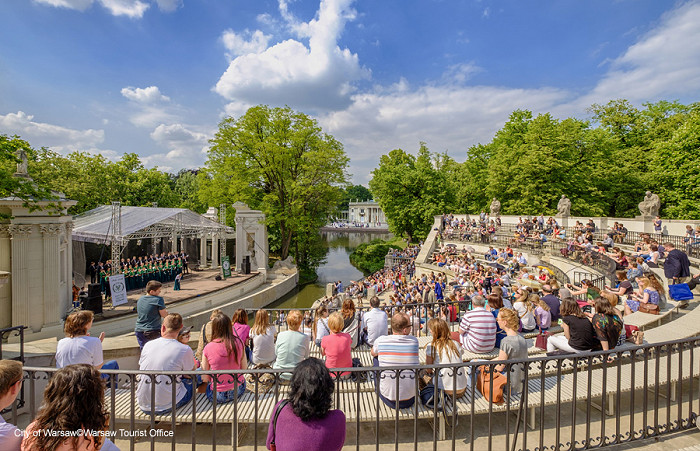Managing your booking with Club Europe couldn’t be easier.
Click below for details of our user-friendly client portal.
Find out moreTel: +44 208 772 6446



“I have had excellent service as always. We used the sites as sources of historical evidence to aid GCSE performance. All aspects of the trip...”
Patrick, History Teacher, Hampshire
“Club Europe offer a great personal service, helpful and always proactive and patient. They are really positive and professional.”
Alexandra, Head of Physics, Alleyn’s School London

Warsaw, the capital of Poland is spread across a broad area with diverse architecture: restored Gothic, communist concrete, modern glass and steel. This jumble is a sign of the city’s tumultuous past. Warsaw has suffered the worst history could throw at it, including virtual destruction at the end of World War II – and survived.
Krakow, listed by UNESCO as one of the World’s 12 most historic sites, was miraculously spared from destruction during WWII. Discover the historic heritage of Krakow as you walk through its streets from Krakow’s Old Town and Kazimierz Jewish District to Wawel Castle and the Jagellonian University.
Day 1
Fly to Warsaw. Evening meal at the hotel and time to settle in.
Day 2
Start your trip with a guided tour of Warsaw. The day’s sights will include the Royal Castle and Zabinski’s Villa at Warsaw Zoo, where director Jan Żabiński and his wife Antonina sheltered people seeking refuge, mainly Jews, during Nazi occupation.
Day 3
Another full day of visits, including the Neon Museum and a treasure hunt in Warsaw’s Old Town. End the day with a visit to the Museum of Polish Jews, followed by a traditional evening of Polish Folklore.
Day 4
Morning transfer to Krakow. Once in Krakow you will undertake a guided tour of the UNESCO World heritage city, including Schindler’s factory. The character of Oskar Schindler and the life stories of the Krakow Jews he saved are presented in the exhibition as part of the city’s complex wartime history.
Day 5
A visit to Auschwitz-Birkenau, a concentration camp which has been preserved to help our generation understand this horrific chapter of history. Afternoon at leisure back in Krakow and some sightseeing with the help of your Tour Manager.
Day 6
A morning chocolate-making workshop in central Krakow. The Poles love their chocolate and will demonstrate how it is made. An afternoon visit to the world renowned Wieliczka Salt mines, followed by a farewell meal in a local restaurant.
Day 7
Check out of the hotel and transfer to Warsaw for your return flight.
explore the streets of Krakow’s Old Town and Kazimierz Jewish District to Wawel Castle and the Jagellonian University, one of the oldest surviving universities in the world.
home to Polish monarchs throughout the centuries. Rebuilt after destruction in WWII.
learn about the heroic but doomed uprising against German occupation in 1944.
enjoy delicious traditional Polish food accompanied by folk music and dancing.
Built in the 1950s as a ‘gift of friendship’ from the Soviet Union. Visit the top floor for fantastic views over Warsaw.
see some of the most iconic neon images from Poland’s cold war era.
discover 1000 years of Polish Jewish history, all the way through to WWII and the destruction of Europe’s largest Jewish community.
humbling experiences and poignant reminders of this dark time in history.
One of the oldest mines in Europe. A labyrinth of tunnels, passages and underwater lakes with intricate monuments and statues carved into the cave walls.
We base our groups in 3 star hotels, all situated within walking distance of the historic city centres.
Yes, there are many advantages to this. One is that greater numbers sign up which means a lower tour price per student. Another is that a diverse (two-subject) itinerary can broaden the horizons of both ‘groups’ though, of course, we can create separate agendas for each if preferred.
The most pleasant time of year to come to Europe is between May and September; you may wish to consider this when planning your tour. Summer temperatures across Europe range from 18-35 degrees Celsius. European cities in winter can also offer many interesting cultural experiences that you may enjoy.
Yes. We include a comprehensive insurance package in every tour unless instructed otherwise. We can provide you with the details.



“I have had excellent service as always. We used the sites as sources of historical evidence to aid GCSE performance. All aspects of the trip...”
Patrick, History Teacher, Hampshire
“Club Europe offer a great personal service, helpful and always proactive and patient. They are really positive and professional.”
Alexandra, Head of Physics, Alleyn’s School London
Click below for details of our user-friendly client portal.
Find out more